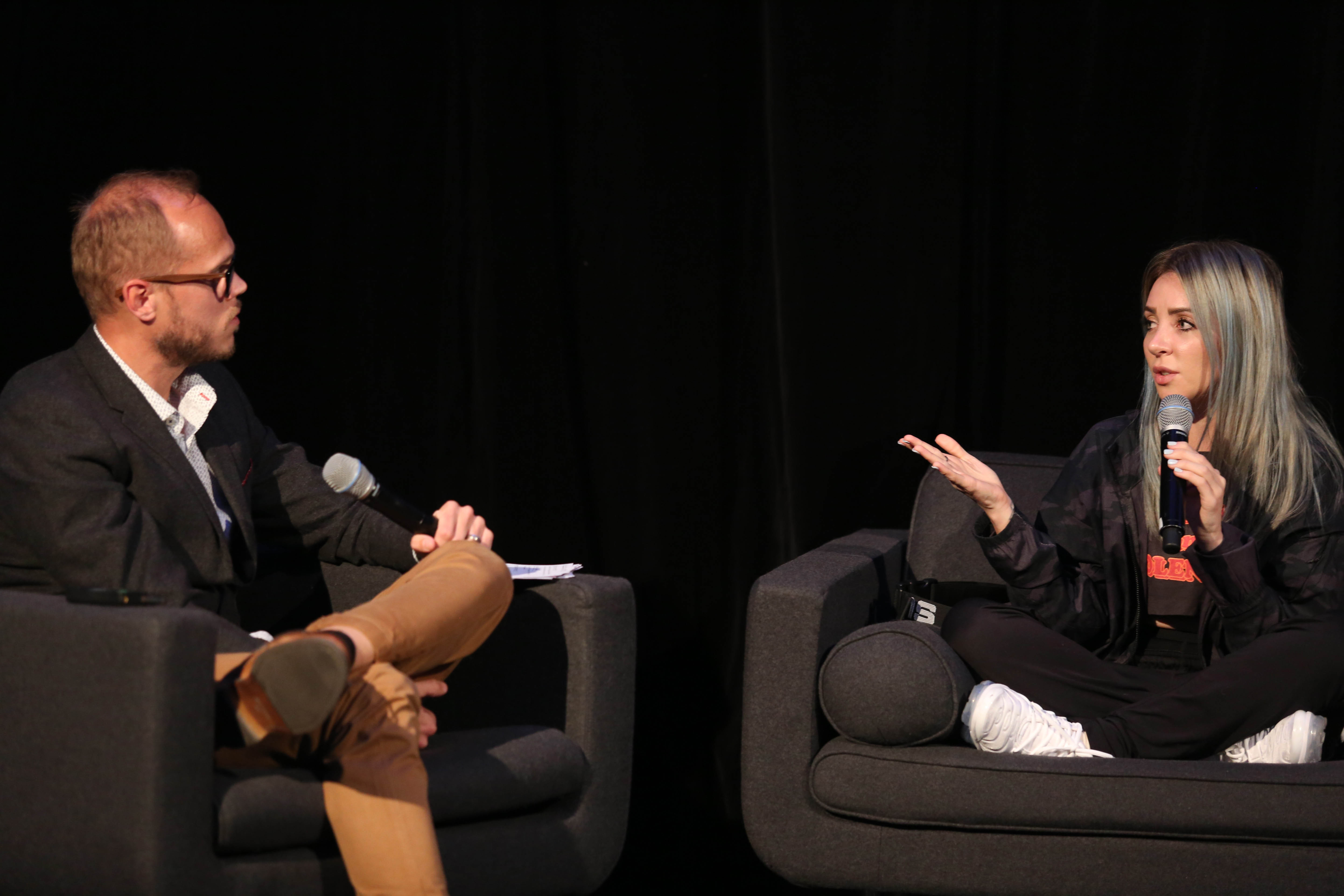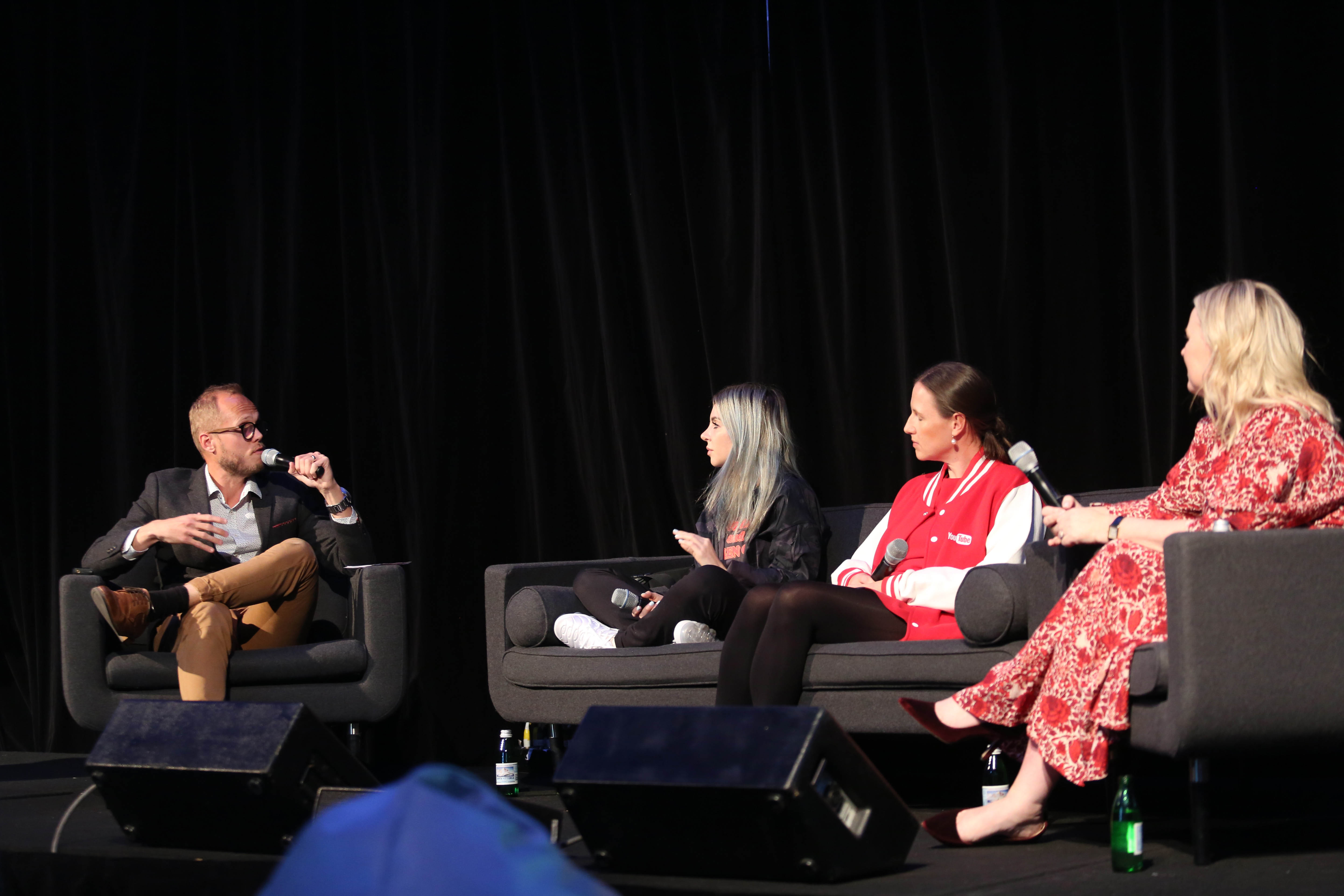5 things we learnt at Universal’s “Are You Part of The Conversation?” brand integration panel

It’s no longer a question of whether artists should partner with brands, and it’s no longer enough for a musician to hold up a product, declare it their fave and collect a paycheck.
The world of brand integration is growing and the music industry is along for the ride.
Universal‘s “Are You Part Of The Conversation?” panel gathered together Alison Wonderland [Alexandra Sholler]; Mars and Wrigleys CMO Alison Levins; industry head, automotive and consumer goods at YouTube Caroline Laird and BRING creative director James ‘Griff’ Griffiths to discuss the expanding role of brands in the music industry.
There was also a sneak peek of EXTRA’s newest Support Act campaign which sees Wonderland, 5 Seconds Of Summer, The Rubens and 360 partner with 16 up-and-coming Aussie acts that participate in a pseudo talent competition that exists within the hero artists pre-video advertisements on YouTube.
Viewers vote with the amount of time they spend watching the ad, and the four winners will perform at the Universal Music Australia 2018 ARIA Week showcase and receive a mentoring session and studio day with their hero artist.
Here’s 5 of our top takeaways from the panel
Entertain first, inform second
The panel began with the ultimate questions from brands in the technological age; how do you cultivate an audience when they literally have the ability to block your message?
“What you have to understand is that the audience is still there, what has shifted is that first five seconds. They’re much more important than five, ten years ago,” said Levins.
“The point of any communication is to move you, make you laugh, make you cry. A piece of communication that just informs you and doesn’t do anything else, you’re going to have a tough time getting anyone’s attention.
“You have to provide it in a way that’s entertaining, engaging and that warrants the audience’s attention.”

Being relatable is the new celebrity
Consumers no longer want to be sold to by perfect visions of celebrity, they want someone they can relate to. Relatability acting as a buzzword throughout the panel.
“On social media, it’s important to have content that shows people who you really are. You’ll see the video’s that are relateable get the most views,” said Sholler
“The glossy pop star type of advertising doesn’t work anymore, consumers want to feel and hear from people like them. The culture is leaning towards the artists that form a real connection with their following.”
Consumers can smell a paycheck a mile away
Shaller shared her reluctance towards public figures that blatantly sell products to their fans, opting for a more subtle approach, like the EXTRA ‘Support Act’ campaign.
“I would feel super awkward selling something or advertising something and I think people can smell bullshit a mile away, people aren’t stupid,” said Sholler.
“Then you’re a sellout, then you’re not relatable, then you’re not real.”
“The flipside of that,” continued Levins, “is that when you come to an artist with a genuine idea, the amount of generosity that they present and share back is kind of mindblowing.”
Collaboration is about learning and risks
Collaborations, the panel maintained, was a surefire way to open up different markets. The key is to make your collabs count.
“It’s the collaborations that step outside their comfort zones and that take risks that you really see payoff,” said Laird.
“When brands come to for collaborations we’re looking at not making it super polished but how do you enhance it and take it one step further.
“Collaboration is really important for moving forward. There are two parts to collaboration: the learning part where you’re exploring what is possible and then taking that risk and being open about bringing in people from completely different worlds.”
Evolve or die
To wrap up the panel, Griffiths posed a question to the group; how do brands keep up in the ever-expanding world of artist integration?
“The challenge is to continue the narrative but also to remain distinctive. You’ll see brands become a bit muddy for what they represent and that’s just confusing for everyone.
“In terms of evolution it’s about; how do you stay relevant? how do you stay distinctive? how do you reach consumers where they are?” said Levins
“If brands continue to remain liner in their campaigns, ‘I have a hero idea, chop it up into pieces and I have a marketing list’, what you’re not doing is considering how people are actually grabbing that content.
“How do you grab hold of the trends in a really organic and authentic way. I think brands that do that are ultimately the brands that are going to win.”































